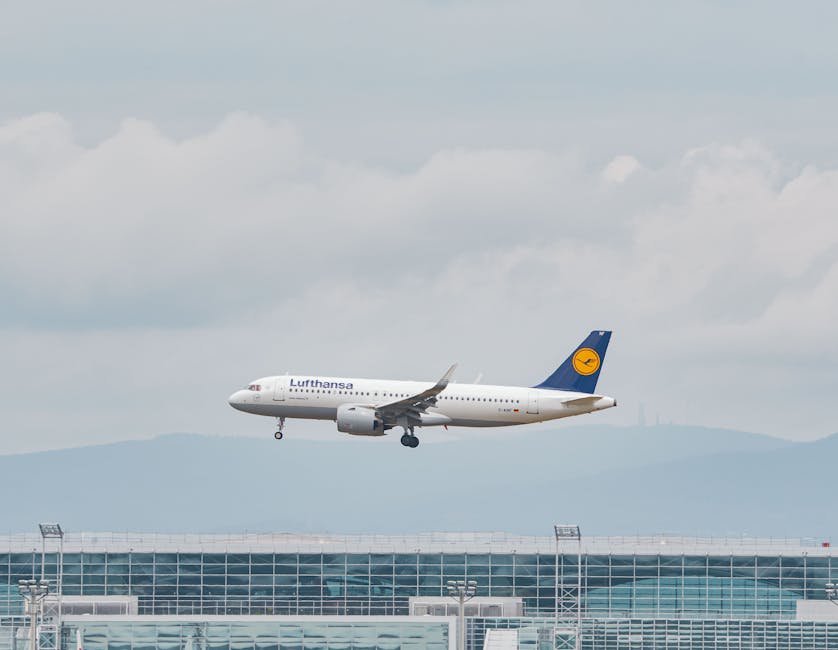[Disclaimer] This article is reconstructed based on information from external sources. Please verify the original source before referring to this content.
Neeews Summary
The following content was published online. A translated summary is presented below. See the source for details.
The one-day strike at 13 major German airports, including the key hubs of Frankfurt and Munich, has caused significant disruption to air travel in the country. The strike, called by the ver.di service workers union, is part of ongoing labor disputes over new contracts for airport security workers and wider pay negotiations for federal and municipal government employees.
The scale of the disruption, with over 3,500 flights canceled and an estimated 560,000 passengers affected, underscores the significant leverage that airport workers hold in these negotiations. While the strike is a strategic move to apply pressure on airport management and the German government, experts warn that a prolonged impasse could ultimately harm the workers themselves and the broader economy.
As the aviation industry continues to recover from the COVID-19 pandemic, the German strike is part of a broader trend of labor unrest in the sector across Europe. The outcome of these negotiations and the potential for new EU regulations on flight disruptions will be closely watched in the coming months.
Source: VOA Economy
Our Commentary
Background and Context
The one-day strike at 13 major German airports, including the key hubs of Frankfurt and Munich, is the latest development in ongoing labor disputes between workers and airport management. These disputes involve negotiations over new contracts for airport security workers as well as wider pay negotiations for federal and municipal government employees. The strike, called by the ver.di service workers union, has resulted in the cancellation of the majority of flights at the affected airports, causing significant disruption to air travel in Germany.
Expert Analysis
According to aviation experts, the one-day strike is a strategic move by the ver.di union to apply pressure on airport management and the German government to address the workers’ demands. “This strike is a clear message that airport workers are willing to take strong action to secure better pay and working conditions,” said aviation analyst Sarah Müller. “The scale of the disruption shows the significant impact that these workers can have on the country’s aviation sector.”
However, some experts also note that the strike could backfire if it leads to a prolonged impasse in the negotiations. “Prolonged disruptions to air travel could ultimately harm the workers themselves, as well as the broader economy,” said transportation economist Hans Weber. “Both sides will need to find a way to compromise and reach an agreement that addresses the core concerns of the workers while also ensuring the long-term viability of the airports.”
Additional Data and Fact Reinforcement
The impact of this strike is substantial, with over 3,500 flights canceled and an estimated 560,000 passengers affected. This highlights the significant leverage that airport workers hold in these negotiations, as their actions can effectively shut down major transportation hubs. The disruption to air travel will have ripple effects on businesses, tourism, and the overall German economy.
Related News
The one-day strike at German airports is part of a broader trend of labor unrest in the aviation industry across Europe. In recent months, there have been similar strikes and walkouts by airport and airline workers in countries such as the United Kingdom, Spain, and France, as workers demand better pay and working conditions amid the industry’s recovery from the pandemic.
Additionally, the German strike comes as the European Union is considering new regulations to address the issue of flight disruptions, including measures to improve compensation for passengers affected by canceled or delayed flights.
Summary
The one-day strike at 13 major German airports has caused significant disruption to air travel in the country, with over 3,500 flights canceled and an estimated 560,000 passengers affected. This strike, called by the ver.di service workers union, is part of ongoing labor disputes over new contracts for airport security workers and wider pay negotiations for federal and municipal government employees.
While the strike is a strategic move to apply pressure on airport management and the German government, experts warn that a prolonged impasse could ultimately harm the workers themselves and the broader economy. As the aviation industry continues to recover from the COVID-19 pandemic, the German strike is part of a broader trend of labor unrest in the sector across Europe, and the outcome of these negotiations and potential new EU regulations will be closely watched in the coming months.


